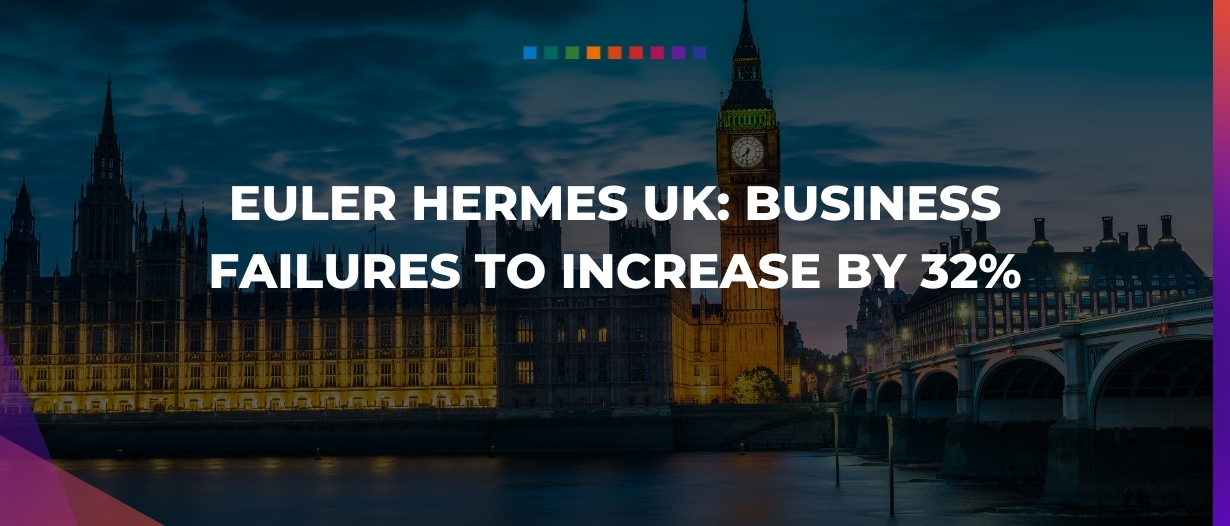Euler Hermes, the world’s leading trade credit insurer, states that the UK is set for a significant rise in business failures as companies readjust to the removal of government COVID-19 pandemic support measures.
- Rapid increase as government support schemes withdrawn, will remain at pre-crisis levels
- 18,900 UK insolvencies ‘spared’ by UK state support measures in 2020
- The insurer expects Italy to be Europe’s hardest hit major economy in 2022
The underwriter forecasts that, compared to pre-Covid levels, UK insolvencies could increase by a total of +32% by the end of 2022, with more than 37,000 businesses forecast to fail (17,100 in 2021, 20,540 in 2022). Businesses were spared the worst effects of the pandemic in 2020 (15,559 insolvencies) and in the first three-quarters of this due to government support schemes still in place.
Despite the increase, insolvencies in the next 12 months are likely to remain at below pre-crisis levels (2019: 22,000). British business failures declined by -30% last year as the government rolled out one of the most extensive programmes of state support measures in the global response to COVID-19. Euler Hermes’ research shows this spared around 18,900 insolvencies.
International outlook
The firm estimates that the global economic shock could have resulted in a +40% surge in worldwide insolvencies in 2020. However, the year ended with a -12% decrease in insolvencies due to massive state interventions and further extensions of ‘whatever it takes’ policies prevented more than 35% of insolvencies globally, temporarily.
Euler Hermes’ Global Insolvency Index will rebound by +15% y/y in 2022 after two consecutive years of decline. The delayed normalisation of business failures gaining traction in 2022, even with generally accommodative monetary policy helping to manage the pressure on companies’ liquidity.
The recovery will be uneven across Europe. The insurer anticipates insolvencies will increase in Italy by +68% to the end of 2022, while Germany will post a 4% uptick over the same period. France is expected to post a 23% rise. Emerging Markets are already seeing a normalization of business insolvencies amid renewed restrictions in response to new waves of infections and less generous policy support.

“Looking at insolvency levels, governments succeeded in helping companies face the crisis – massive state intervention prevented one out of two insolvencies in Western Europe and one out of three in the US in 2020. Their extension will keep insolvencies at a low level in 2021, but what happens next depends on how governments act in the coming months”, said Maxime Lemerle, Head of Sector and Insolvency Research at Euler Hermes.
“Numerous factors will set the tone for the path ahead. These include the momentum of the global economic rebound, the pace of withdrawal of state support, and the many fragile companies still at high risk of default – notably the pre-Covid-19 ‘zombies’ kept afloat by emergency measures – and the companies weakened by extra indebtedness from the crisis.”



























